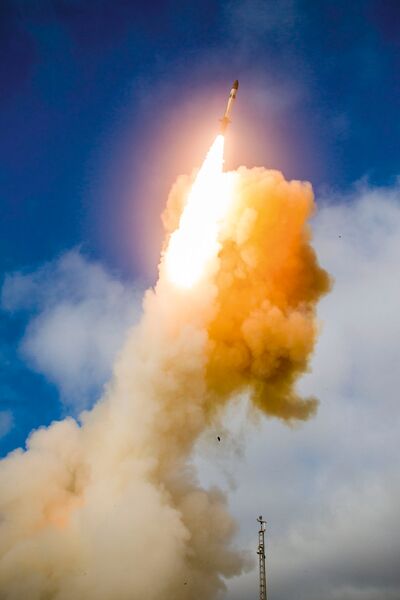
The US and Japan co-produce the Standard Missile-3 Block IIA ballistic missile interceptor. (US Missile Defense Agency)
William LaPlante, US undersecretary of defence for acquisition and sustainment, said on 14 March that he would like to see the US and its allies co-produce more weapon systems to speed up the availability of high-demand equipment.
Noting that US-based Raytheon Technologies and Japanese industry co-produce the Standard Missile-3 Block IIA ballistic missile interceptor, LaPlante said a similar arrangement could be established with Europe for missile defence systems, which have generated increased interest because of Russia's missile attacks on Ukraine.
“We need much more of those [arrangements], where parts are produced here and there,” LaPlante told the Ronald Reagan Institute's National Security Innovation Base Summit in Washington, DC. “Europe wants to do it. The Germans want to do it. I think now is a golden opportunity.”
LaPlante acknowledged that increasing co-production would require the US Department of Defense (DoD) to address concerns about exporting sensitive information.
LaPlante made his comments a day after Australia, the UK, and the US unveiled plans on 13 March to stand up production of nuclear-powered attack submarines in Australia as part of the AUKUS arrangement. The submarines will be based on a UK design and will incorporate US technology.
Establishing the Australian production line is “a huge, bold step, and it's going to take a lot of work”, LaPlante said.
Looking to read the full article?
Gain unlimited access to Janes news and more...
